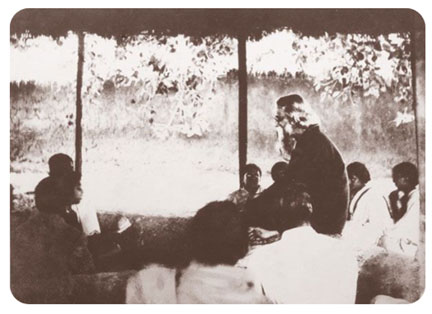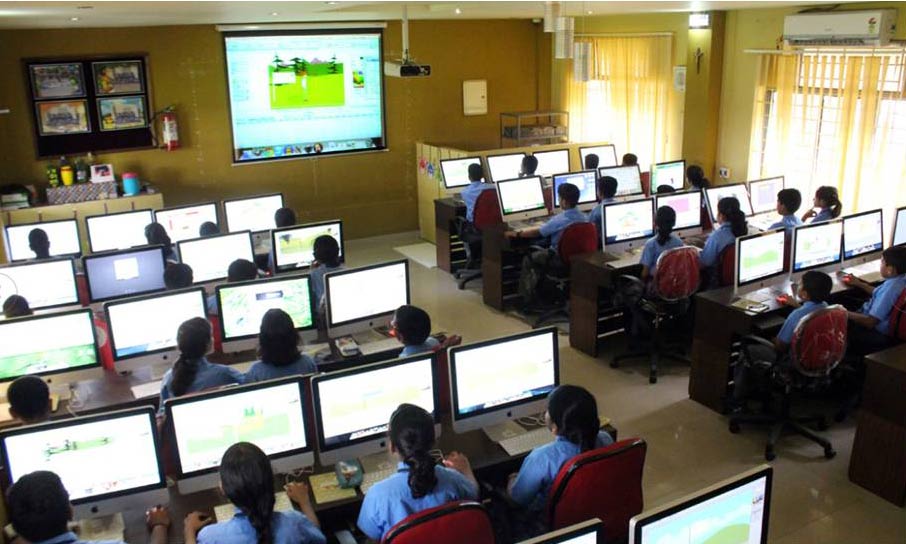Contact Numbers
033 4007 19919903995949
7044747141
Emails
Institute.imcfts@gmail.cominstitute@imcftsmedia.com
imcfts@rediffmail.com

PHILOSOPHY BEHIND EDUCATION

Education, Who Is In Charge?!
STUDENTS ? PARENTS ? INSTITUTIONS ?
Before we enter in this discourse we must resolve the basic questions related to education, as the history of education has left foot-prints of thousands of years back with civilization.
Now, what is education?
And why is it necessary in our life?
INSTITUTE OF MASS COMMUNICATION FILM AND TELEVISION STUDIES
Affiliated to
UNIVERSITY OF KALYANI
has got not only the answers of the above mentioned questions but has got the solutions with application for the last twenty years by grooming the students with a 98% placement record after Graduation and Post Graduation
What is education?
It will be a bit of a history lesson, so grab a cup of coffee or tea and your reading glasses. 15 minutes will give a good historical context of where we stand today. If you have more time, you’ll gain some insights and start your journey to become an expert on education policy of IMCFTS.
IMCFTS stands for
THEN
To Spread Awareness
So To Think
Above Cast, Creed And Inequalities
This Institution Is Dedicated
To Build Up Body And Soul
To Achieve Wisdom
For Understanding Mankind
And Propagate Knowledge
Through
Media”
What is Knowledge?
Knowledge is a combination of tools you acquire by study in a disciplined way in any faculty of your choice, Arts, Science, Commerce and Skill Development in an Institution or self taught way to apply and earn your honorable living.
And why Knowledge is necessary?
As because, knowledge you will acquire by educating yourself at IMCFTS affiliated to the UNIVERSITY OF KALYANI has the power to answer all most all the questions of the Interview Board for the selection of your candidature for the job you have applied for.
So, KNOWING is your BEING to face all the challenges in a tuff and competitive brave new world to survive and to meet your basic NEEDS.
So, in our Creative Moments
Can we not dream a dream for a better society where we can share our resources, live a life in tranquility, love and compassion?
These haunting questions gave rise to establish this
INSTITUTE OF MASS COMMUNICATION
FILM AND TELEVISION SUDIES
Affiliated to
UNIVERSITY OF KALYANI
UNIVERSITY GRANTS COMMISSION
THANK YOU


At that time, Mrinalini Devi gave her ornaments and Rabindranath sold his Bungalow and gave all the prize money of the Nobel Prize he received in 1913 to develop Visva Bharati. It was 1921 when Visva Bharati was officially named so and attracted some of the most creative minds in the country. It was granted full university status in May 1951, soon after independence and grew to become one of India's most renowned places of higher learning with Rabindranath Tagore's eldest son being the first Upacharya (vice chancellor).
Things to explore in Visva Bharati:
Visva Bharati still retains the rural and simple old-world charm where classes are held under the sky – under the shade of huge mango trees. Tagore believed in imparting education within natural surroundings. Chhatimtala is one such place where Tagore's father Maharshi Debendranath Tagore used to pray and meditate and later, Tagoreused to take classes under the shade of Chhatim trees. The tranquility of this place will enthrall anyone. One can find old buildings made up of mud walls and thatched roofs within the main campus. Here Tagore introduced a curriculum that was a unique blend of art, human values and cultural interchange where nature walks and excursions were also included. Started off with five students (including his eldest son) and an equal number of teachers, Tagore wanted to combine education with a sense of obligation towards the larger civic community. He expanded the school's relationship with Santhal tribal community living nearby villages. It was his effort that Santiniketan has today become the largest centre for educated Santhals in West Bengal.
History of Visva Bharati:
Back in 1863, Maharshi Debendranath Tagore, father of Rabindranath Tagore and also the Zamindar of Silaidaha in East Bengal was given land by Babu Sitikanta Sinha, the Zamindar of Raipur where he had set up an ashram. Initially it was called 'Brahmacharya Ashram' and later renamed as 'Brahmacharya Vidyalaya' to encourage people from all walks of life to come to the spot and meditate. In 1901, Rabindranath Tagore established a co-educational school inside the premises of the ashram.
There are different independent schools and centres of learning within the premises of Visva Bharati that lure many tourists to visit here. Kala Bhavan is dedicated to visual arts and fine arts while Sangeet Bhavan is dedicated to folk music, vocal music, dance and drama and specialization in Hindustani classical music and Rabindra Sangit. Cheena Bhavan focuses on the language, culture and tradition of China whereas Nippon Bhavan is the wing dedicated to the learning and promotion of Japanese culture.
There are several other Bhavanas inside Visva Bharati that include – Shiksha Bhavana (Institute of Science), Bhasha Bhavan, Vidya Bhavan (Institute of Humanities), Vinaya Bhavana (Institute of Education), Palli Shiksha Bhavan (Institute of Agricultural Sciences), Palli Samgathana Vibhaga (Institute of Rural Reconstruction) etc. Festivals like 'Basanta Utsab' or 'Poush Mela' are celebrated here that is considered to be an extension of Tagore's concept of fusion of education with life. Visva Bharati has taken path-breaking steps in the field of education and the academic arena has grown in all directions to make it a most-sought-after university in the country that should be celebrated eternally.
Summary:
Visva Bharati in Santiniketan founded by Rabindranath Tagore is a treasure and pride of Bengal as well as India which is still regarded as the unique abode of learning unlike any in the world. The open-air classrooms and curriculum are carrying the rich legacy of Tagore and inspiring creativity, imagination and moral awareness of students.
